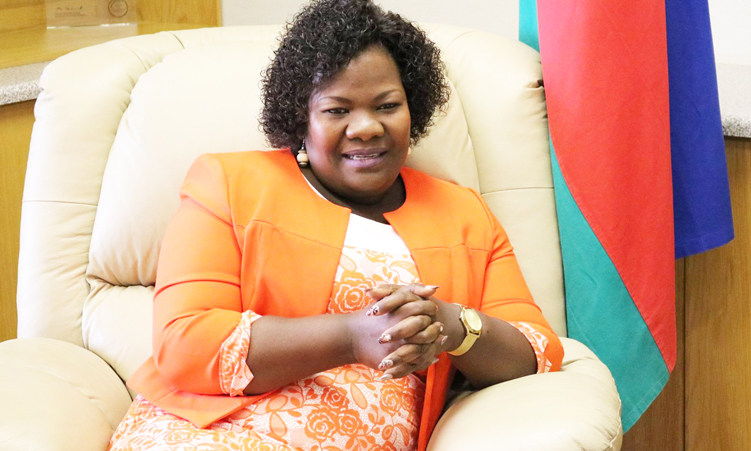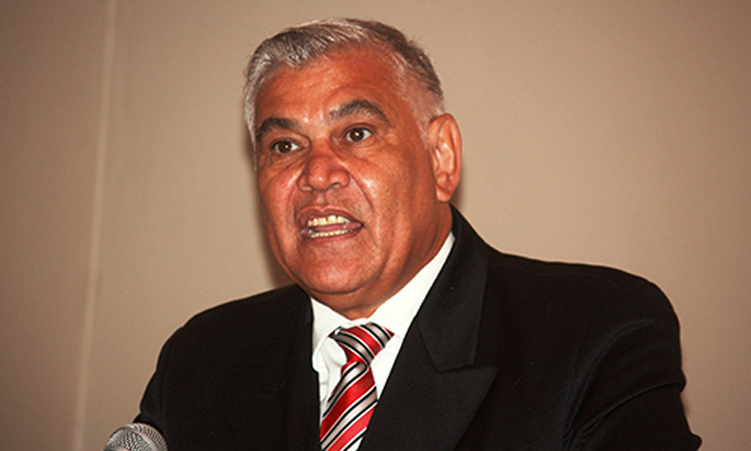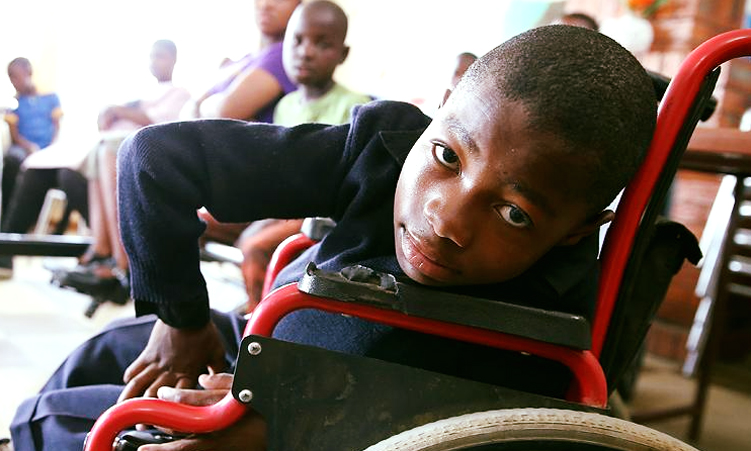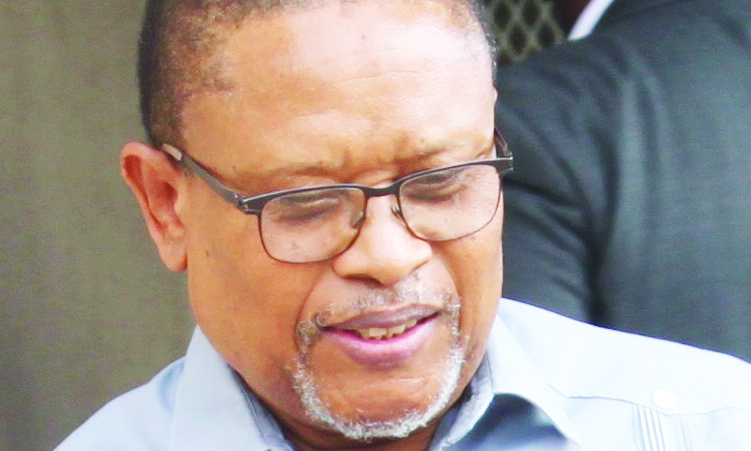8 July 2024
I am extremely privileged and humbled to address this important ceremony and am thankful to you all who are present here to witness this historic achievement.
From the onset, I take this opportunity to express gratitude, on behalf of the government of Namibia, and indeed every citizen of our country, in particular the Hardap region.
Our sincerest appreciation is extended to the Municipal Council of Murcia in the Republic of Spain and the MVA Fund of Namibia for this generous donation.
I am delighted to represent the government of Namibia, here today, in the handing over and commissioning of the two firefighting trucks and an ambulance to the Mariental Fire and Emergency Services.
Today the world battles with geopolitical instability in some parts, causing supply chain disruptions and deepening inequalities and economic hardships in other parts – leading to rising interest rates, along with inflation, soaring prices, and debt levels which crush our vulnerable communities.
We are witnessing the rapidly unfolding cost-of-living crisis, which affects destitute members of society including women and girls the most.
In Namibia, we are not immune, being exposed to a spectrum of disasters, including droughts – which lead to the loss of livestock and agricultural produce in large quantities.
The persisting droughts also contribute to rural-urban migration. As if that is not enough, we are also prone to floods, wildfires, pest outbreaks, and windstorms, to name but a few.
The global theme for disaster risk reduction is ‘Fighting Inequality for a Resilient Future’.
It is aimed at creating a global culture of disaster reduction, including disaster resilience, prevention, mitigation, preparedness, recovery, and rehabilitation.
This is very important as one does not know when disaster will strike and in what form. Hence Namibia continues to work shoulder to shoulder with regional neighbours and global friends to break the cycle of poverty and disaster by honouring the various international agreements geared at achieving the United Nations Sustainable Development Goals.
The Hyogo Framework for action in 2005 allowed Namibia to develop and align its Disaster Risk Management (DRM) Policy of 2009 and the subsequent legal and regulatory frameworks of 2012 and 2013, as well as the National Strategy for Mainstreaming Disaster Risk Reduction and Climate Change Adaptation into development planning of 2017.
It is very important that we must adopt mechanisms and develop strategies in dealing with disasters in a coherent manner.
There is a call for more dedicated action that needs to be focused on tackling underlying disaster risk drivers, such as the consequences of poverty and inequality. Disaster risk reduction requires an all-of- society engagement and partnership.
It also requires empowerment and inclusive, accessible, and non-discriminatory participation, paying special attention to people disproportionately affected by disasters, especially the poorest. A gender, age, disability and cultural perspective should be integrated in all policies and practices, and women and youth leadership should be promoted.
Disaster preparedness and resilience building are important for disaster risk management and reduction and as such remain an important priority for the government.
I am confident that, despite the inevitability of disasters, their impact can be significantly reduced through proactive preparedness and ultimately preventing adverse situations from evolving into full-blown emergencies and disasters.
This partnership between the two municipal councils allows for sharing of experiences on effective actions needed to be taken to reduce mortality, damage to infrastructure and the environment due to disasters. This requires and I therefore urge individuals, communities, the private sector, civil society, all citizens, and governments to work together to ensure a meaningful contribution to resilience building to disasters.
On a national level, you may be aware that Namibia developed and adopted the National Strategy for Mainstreaming Disaster Risk Reduction. For the government, the importance of planning for risk reduction through development of disaster risk reduction strategies cannot be underestimated. Therefore, the government, through the Office of the Prime Minister, continues to expand on existing disaster reduction and resilience strategies with technical support from the United Nations. It is clear that all stakeholders are required to pursue a proactive and integrated approach.
The development of these strategies therefore make use of multi- sectoral and multi-disciplinary inputs for effectiveness. Disaster risk reduction and resilience strategies help us consider our emergency response activities, contemplating existing and new disaster risks. This enables us to design or adjust our activities so that people and communities become safer and more disaster-resilient. Most importantly, it speaks to efforts aimed at avoiding and mitigating disaster impacts, as well as those targeted at building back better after a disaster.
These strategies also provide valuable insights into the underlying factors of vulnerability to hazards and their features. It helps us identify and map local capacities to cope with hazards. Ultimately, the disaster risk reduction approach helps us conduct effective disaster responses while reducing risks, should disasters occur.
To our friends both local and international as well as the private sector, communities and institutions that support us, we thank them. We will not succeed to strengthen the resilience of our communities against disasters without planning and implementing risk reduction activities in cohesion. Disaster risk reduction require collective efforts and everybody has a role to play to make our communities safer against disasters. Community preparedness is very important when a disaster occurs.
The government through the Ministry of Urban and Rural Development, being the sector ministry responsible for local authorities in the country, has over the years contributed to the upliftment of emergency and disaster risk management through infrastructural development, provision of fire-fighting equipment, and capacity building of personnel. This support aims to achieve the upgrading of their firefighting services, through the construction of fire stations, subsidisation of firefighting trucks, equipment and training for local authorities.
Therefore, this timely donation is a significant contribution towards improving the capacity of the Mariental Fire Fighting and Rescue services and improving the ability to protect the lives of our people. It is another good example of how different sectors can work together with the government in finding solutions for challenges that confront our citizens on a daily basis.
The national government, central, regional and local government can achieve more through partnerships with stakeholders, such as the one we are witnessing today.
Evidently this project is an accomplishment towards improving access to fire services and to expedite the services during times of tragedy, and for that we salute you. This project will not only benefit the residents of Mariental and the Hardap region, whose lives and properties will be protected, but will also enhance the capacity of firefighters who will handle the technical operation of the vehicles.
The donation includes an ambulance and two medium pumper firefighting trucks with both water and firefighting foam storage capabilities. I am informed, that it also comes with ropes for technical rescue operations, numerous fire hoses, and water appliances such as branches, a power generator and flood lights.
Hence, I am calling on the Mariental Municipality, the staff that is entrusted to handle this equipment to ensure the effective and efficient management of these units so that they can serve many people and communities for many years to come. Further that you should guard these resources and equipment jealously against theft and mismanagement to ensure the proper utilisation.
The loss of a single piece of equipment has the potential to render the entire truck unable to respond to disaster and this in the face of an increasing and unprecedented natural and human-induced disasters that threaten the lives and livelihood of our people.
Allow me to stress that I believe this forward thinking approach demonstrated by the Motor Vehicle Accident Fund of Namibia, in focusing on supporting preventative and support services for the Namibian people they serve by joining the Mariental Municipality in availing resources to train and equip young Namibians, from this region, to study and qualify themselves in emergency medical care is commendable.
I am informed that the MVA Fund committed to sponsoring a total of six students from this region to pursue a bachelor’s degree of emergency medical care over a period of six years. Today, the fund and the municipality will be awarding three bursaries, bringing the total number of recipients to four.
The MVA Fund made two emergency care practitioners available who are already stationed at the Mariental Municipality/MVA Response Centre, and another four candidates are to be trained as emergency care practitioners on a basic level bringing the total number of paramedics at the response centre to 10.
I look forward to being back at Mariental as I understand the collaboration between these two institutions will also see the introduction of a traffic simulation park in the succeeding year.
In conclusion, I would like to call upon all of us as firefighters, safety officers and responsible members of this society, to recommit ourselves to saving lives and livelihoods and to ensure that all segments of our communities are protected, especially the most vulnerable – those with disabilities, women, girls, the elderly and the marginalised.
I am confident that the assistance we received and enjoy today as the Mariental community through these smart partnerships would further strengthen the cordial relationship that exists between Namibia and Spain.
Therefore, with these few words I congratulate you on the achievement of this town, its people and its leadership. I have no doubt that the Mariental Fire and Rescue Services will go a long way to save lives and improve the quality of life of all our people by ensuring that superior services are delivered.
It is now my pleasure to celebrate with you the commissioning of the two donated firefighting trucks and an ambulance, and I look forward to the achievement of even more milestones in 2024 as we inch closer to attaining our national visions.
With that I declare the donated firefighting trucks and the ambulance officially commissioned!
Stay informed with The Namibian – your source for credible journalism. Get in-depth reporting and opinions for
only N$85 a month. Invest in journalism, invest in democracy –
Subscribe Now!






